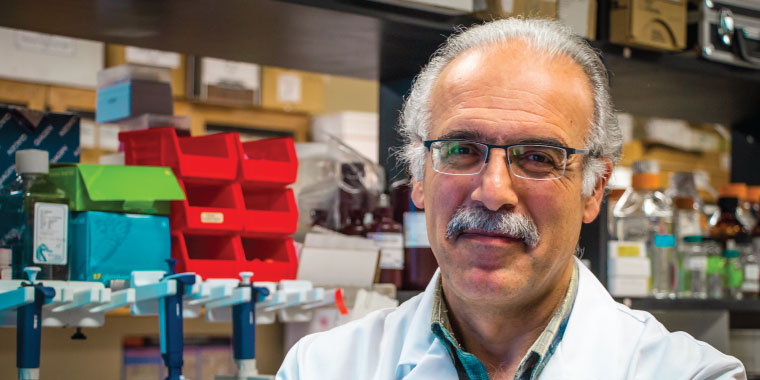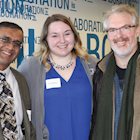The Kansas City Area Life Sciences Institute (KCALSI) is hosting a series of events encouraging collaboration among scientists, entrepreneurs, students and clinicians called Collaborate2Cure. The idea, as the name suggests is to bring bright minds together in order to solve specific scientific challenges and eventually cure devastating diseases.
KCU researcher Abdulbaki Agbas, Ph.D., is an organizer and participant in Collaborate2Cure. We asked for his thoughts on this exciting endeavor:
Please explain the concept of Collaborate2Cure.
Collaborate2Cure provides a lively discussion platform where scientists in Kansas City and the surrounding areas share their research, discuss their results, and establish a viable collaboration that will ultimately lead to submitted joint manuscripts and grant applications.
Why is Collaborate2Cure important to you and to the scientific/medical community?
We are living in an era that where there is so much information that an individual scientist cannot handle it. It is just as important to learn from each other, share resources, and get help in data interpretation, and even get to know one another. It’s as important to ask questions as the research I do in my lab.. Who is doing what? How can I offer my expertise in certain scientific problems? Who can help me to design certain experiments and allow me to do critical assays in their lab? These are important issues academic life.
Is it unusual for researchers to collaborate like this?
This is the trend and I hope and believe it will continue. Just think, part of a research project is conducted in my lab, the other part(s) are conducted somewhere else in the world. Actually, this is happening already here in Kansas City. We as HCMM investigators are striving to strengthen our collaborative work, which will eventually lead to establish an inter-institutional research center named Institute for Mitochondrion Medicine (IMM).
What do you hope will result from this collaboration?
I hope the medical community will benefit from this kind of program that links the basic science to the translational science, which will lead to cures of some very important non-curable diseases.



_20241112091819.png?w=140&h=140)
(0) Comments